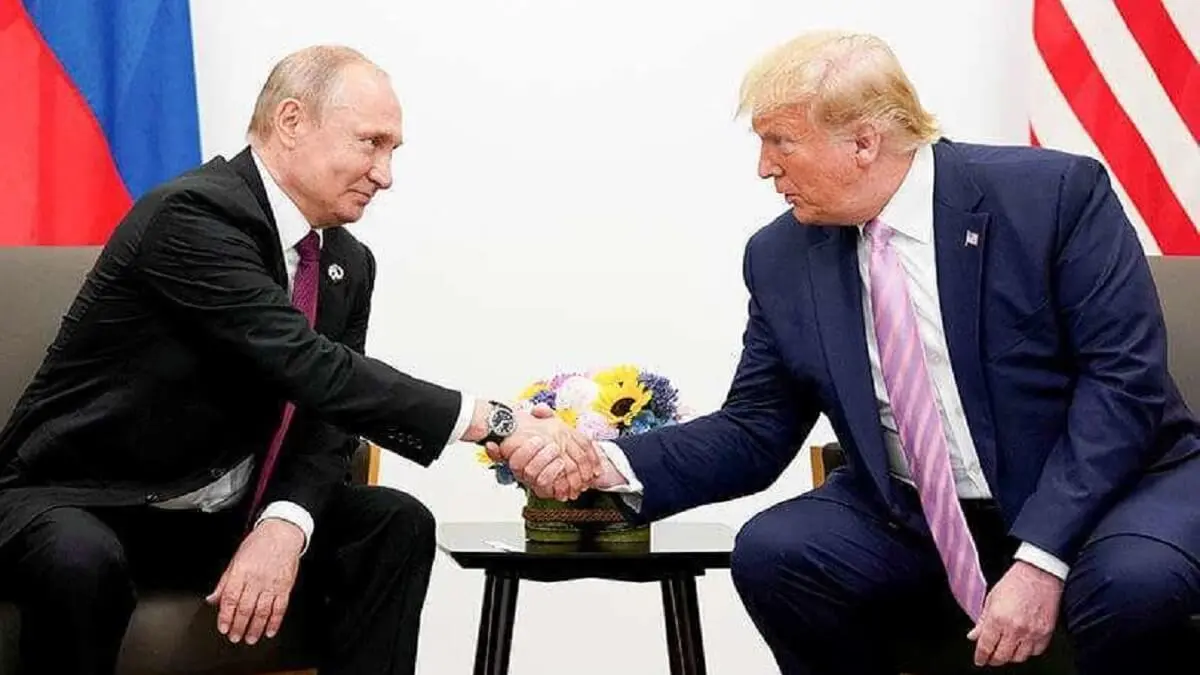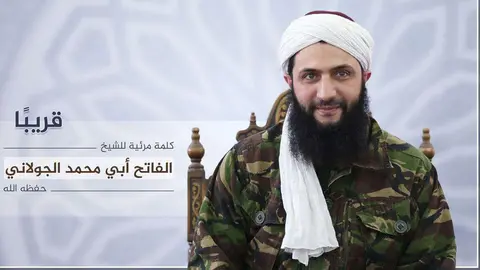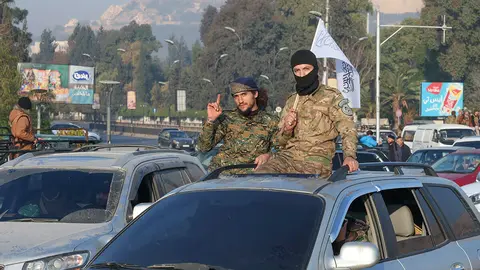The year we lived through

And this, despite the fact that a new year should always be a cause for hope, makes more than a few of us look to the immediate future with a certain amount of apprehension or expectation.
As we have repeated on numerous occasions, we are witnessing a historic moment in which the global geopolitical landscape is being reconfigured, as are the balances of power. There is much that we see that confirms this assertion, and much more that we do not see. And this brings to mind the well-known apocryphal blessing or curse, depending on how you look at it, attributed to Confucius: ‘May you live in interesting times’. For there is no doubt that the twelve months ahead of us will be very interesting.
There are many conflicts ravaging various parts of the globe, many more than make the front pages of the media, and we try to focus on all of them here; however, on this occasion we will mention those that can be considered most likely to have a major global impact in the short term.
The main focus of interest is the war between Russia and Ukraine, which is likely to enter its decisive year. The situation in the Middle East also plays a major role, with the conflict between Iran and Israel in the form of Israel's fight against Hamas in the Gaza Strip, Hezbollah in Lebanon and the Houthi rebels in Yemen. To this we must add the scenario created in Syria following the overthrow of Al-Assad and the seizure of power by the HTS jihadists. In parallel to the latter, we must consider Turkey's actions and aspirations in northern Syria. On the other side of the ocean, China continues its military expansion and development with its sights set more on essential trade routes than on Taiwan, despite appearances to the contrary. And all this with the suspicion of the countries in the region, among which there are also various disputes, and of course the US, which sees the growth year after year of what could be the next world hegemonic power, with the permission, of course, of India which, again, contrary to what is presented to us, because it does not sell, is probably the country most affected and concerned by Beijing's moves, and which will probably have a lot to say in this respect. Finally, we have a latent framework, which step by step is making its way to the front pages, and that is none other than the Arctic.
One thing that should not be overlooked is that what happens in any of the above-mentioned conflicts will have repercussions for the others. Among other reasons because, if we stop to analyse them one by one, we will see that we have intertwined actors and interests and, as is often the case, the interests of two opposing actors in a conflict converge in a different framework, sometimes creating impossible situations that are precisely those that can lead to a generalised confrontation.
Donald Trump's coming to power has been established as the turning point that will determine the beginning of the end of the war in Ukraine. This may be partly true, not least because only Russia, and especially Ukraine, will decide when to end the conflict. And we say ‘especially’ Ukraine because, as we mentioned a year and a half ago, it is up to Ukraine alone to decide on its future, and no one should harbour any doubts that even without Western arms supplies Ukraine will continue to fight, probably at a higher cost, even losing more territory, but veering into what we know as an irregular war scenario that will turn the entire Ukrainian territory into a hell for the invader. A possible settlement, of which there has been so much talk lately, will only be possible when the Ukrainian authorities, for whatever reasons they deem fit.
Of course, external pressures may influence the final decision, but they will not be decisive. They will not be decisive in a country that has been bleeding to death in defence of its territorial integrity for almost three years. Moreover, we should not forget that the pressure will also be on Moscow, which is the other actor that must decide. And just as the US can put pressure on the Ukrainian government with a drastic reduction in military and financial support if it does not agree to negotiate, Russia, which we should not forget is also paying a very high cost for its Ukrainian adventure, can be put under pressure with the opposite equation. If it does not seek to negotiate, then Ukraine will have all the materiel it has not received so far, in sufficient quantities and on a sustained basis, as well as full freedom to use it.
What happens in Ukraine will undoubtedly affect the Arctic region first and foremost, and that means it will influence Beijing's plans and moves, which in turn will have consequences for India.
China has already declared its interest in the Arctic, not for direct access to its resources, as it is not an Arctic nation and has no right to them, but for the use of the northern route, which would close the circle of its ‘Silk Road’ and shorten both time and costs. Moreover, the possibility of leasing the use of a port along this route is something that should not be disdained, as it is common in Beijing's modus operandi, and for a Russia worn out by three years of war it is a possibility that would not exactly hurt (in addition to the benefits it would already gain from the use of this route).
Clearly, any such a move will have a parallel move on the military side. And it is probably this fear that lies behind Trump's recent announcement of his interest in Greenland. Some have taken it as yet another (repeated on this occasion) outburst from the sometimes histrionic figure. However, there is much more to the statement. All those who make fun of it should be recommended to take an interest in what is known as the GIUK gap. This area is considered a key maritime domain in the event of a conflict with Russia and, despite the punishment of three years of fighting, both the Baltic Fleet and the Northern Fleet maintain strong capabilities. Couple this with China's growing interest in advancing its presence in the region, and it is easy to understand why the new US president has aspirations to increase control over this key location with the Greenland move.
But things are not going to be easy for Donald Trump. And his main problems will almost certainly come from within. And there is no greater example than the two attacks a week ago. One of them was Islamist in nature, a threat that has not disappeared and that will probably continue to grow this new year after the seizure of power in Syria by HTS and the unstoppable expansion of these groups in the Sahel, a scenario that will also be affected by what happens between Russia and Ukraine. The other attack is perhaps the most worrying. The explosion of a Tesla (a company belonging to Elon Musk) in front of a hotel owned by Donald Trump, with the convenient suicide of the perpetrator, is a message that escapes few. And the explanations given, author included, are somewhat, shall we say, implausible.
Therefore, we have to expect domestic situations never seen before in the United States. And this statement brings us to another point to keep in mind for this new year. If there is one thing that has become clear, it is that no one wants a direct military confrontation because, frivolous as it may sound, it is too costly economically and, above all, even more costly politically (flag-draped coffins cost votes and governments). That is how cold and hard the explanation is. And that is why we are moving ever closer to a scenario of confrontation in the grey zone, permanent and increasingly intense. Once again we must mention the conflict in Ukraine. Whatever happens, if there is one certainty, it is that Russia will intensify its actions in this area because it is much more profitable, much easier and, above all, they have much more experience and fewer scruples. And that grey area does not only encompass sabotage of the kind that has already taken place or actions in cyberspace or in the cognitive domain. One of the biggest tools to be employed is the use of illegal immigration as a weapon, something that has already proven to have enormous destabilising capacity.
But it is not only Russia that is increasingly moving into this field. We can expect China, already very active in this field, to step up its actions as well. This is probably one of the greatest dangers we face, both in terms of the damage these actions can cause to civilians and the population at large, and the risk that for some reason the possibility of ‘plausible deniability’ will disappear, and we will unwittingly be thrown into the dreaded direct and global confrontation.
And that is why 2025 will be marked by an even greater increase in military spending and a greater urgency in all reasonable countries to update their armed forces, not only in terms of material and ammunition stocks, but also in everything related to new doctrine, tactics, techniques and procedures, since the Ukrainian conflict, if anything, has shown that the way of waging war has changed, not in the basics, but the battlefield has changed forever. There is also a clear explanation for this increase and this need for progress in defence. It is that it is now accepted by everyone (or rather by almost everyone) that, in the event of a generalised conflict, it will not be easy or quick. We must prepare for a confrontation over a long period of time.
Even some countries in idealistic, do-gooder Europe seem to have grasped the situation. But on this side of the world there is still a long way to go and, above all, a lot to change. Each and every one of the above-mentioned conflicts and scenario outlines affects us directly. And in none of them does Europe seem to act as a single entity that knows exactly what its interests are and what it is prepared to do to defend them.
As we can see, the apocryphal curse/blessing mentioned at the beginning has never been more real. And we may be taking the first steps of the year that changed everything.



